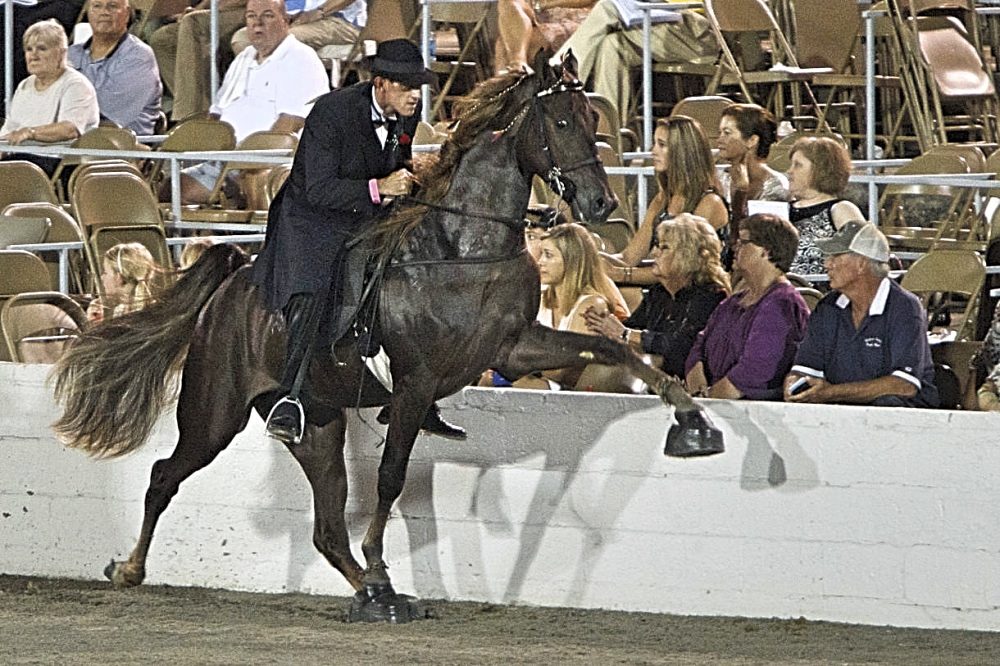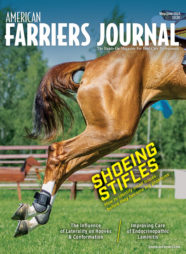The nomination of a familiar name to President-elect Joe Biden’s cabinet might be a precursor to the incoming administration sidestepping Congress in a bid to end horse soring.
Biden’s transition team officially announced Thursday, Dec. 10, 2020, that Tom Vilsack is the choice to succeed Sonny Perdue as the next secretary of agriculture. Vilsack is a former 2-term Iowa governor who led the United States Department of Agriculture (USDA) for 8 years during the Obama administration.
“With a heightened hunger crisis, farmers reeling, and rural communities struggling to weather the pain and economic fallout of the pandemic, the president-elect is looking for someone with experience and bold thinking to deliver immediate relief for families all across the country,” a source familiar with Biden’s thinking told The Hill. “No one fits that description better than Tom Vilsack since he knows the department better than anyone.”
While those issues will take a front seat for the incoming administration, soring might be an issue that is addressed before the conclusion of Biden’s 4-year term. Soring is the intentional infliction of pain to horses’ feet to achieve a high-stepping gait among show horses such as Tennessee Walking Horses.
Vilsack’s USDA spearheaded a bid to amend the Horse Protection Act of 1970, which prohibits sored horses from shows, exhibitions, sales and auctions Although the federal law was enacted to end soring, loopholes have allowed it to continue. Congress has introduced dozens of bills in an attempt to close the loopholes, but none have gained traction.
The U.S. Sen. Joseph D. Tydings Memorial PAST Act of 2019 (H.R. 693) is the only piece of legislation that has been passed by a legislative branch. While the House approved it in a 333-96 vote in July 2019, the Senate’s companion bill (S. 1007) remains assigned to the Committee on Commerce, Science and Transportation.
The lack of congressional action spurred the USDA to propose changes to the HPA in a bid to end soring in July 2016. The USDA finalized changes to the HPA in January 2017 that largely mirrored an earlier version of the Prevent All Soring Tactics (PAST) Act (H.R. 3268). However, the Obama administration did not publish the rule in the Federal Register before leaving the White House. The Trump administration withdrew all unpublished rules, sending them back to the relevant agencies for review.
As the 116th Congress concludes its session Dec. 31, 2020, proposed legislation such as the PAST Act will sunset. While similar legislation will likely be introduced, the Humane Society of the United States (HSUS) is advocating for the incoming Biden administration to pick up where the Obama administration left off.
“President Biden could make it happen with a simple pen stroke,” writes Sara Amundson, president of the Humane Society Legislative Fund. “He was part of the administration that championed the rule, and as president, he can easily resurrect it for implementation.”
In the meantime, five animal rights organizations have joined a Tennessee Walking Horse trainer in proposing a compromise to the PAST Act. The five organizations are Animal Wellness Action, the American Wellness Foundation, the Center for a Humane Economy, Horses for Life Foundation and American Horse Protection Society join TWH trainer Carl Bledsoe.
“Bitter political adversaries have come together to break the logjam in Congress and put the nation on a path to end horse soring,” says Wayne Pacelle, president of Animal Wellness Action and the Center for a Humane Economy. “If enacted, this deal will end the political stalemate in Congress and take the pain out of Walking horse shows throughout the South.”
The organizations are suggesting the following changes.
- The legislation would only apply to Tennessee Walking Horses, Spotted Saddle Horses and racking horses.
- Limit stacked shoes to 1 ½ inches at the toe and 2 ½ inches in height. Current stacks can be 4 ½ to 8 inches in height.
- Eliminate chains and action devices that are used to aggravate soring injuries.
- Abolish the use of tungsten, lead, or other heavy elements or composites in the shoe.
- Ban metal bands to secure a heavy shoe to the hoof.
- Eliminate the possession of caustic chemicals and devices used for soring.
- Institute an inspection program that relies on objective, science-based testing.
- Hire independent inspectors who are licensed and certified by the United States Department of Agriculture.
- Increase penalties from misdemeanor criminal charges to a felony.
“In working on animal cruelty cases, I’ve been told by prosecutors time and again that they just don’t pay much attention to crimes tagged with minimal penalties,” Pacelle says. “They are not going to invest hundreds of hours in a case that earns a 3-month jail sentence and a $1,000 fine for the perpetrator. … Prosecutors told me they’d pay attention when Congress adopted felony-level penalties.”
In an opinion piece published by Horse Nation, the HSUS recently emphasized that it supports the PAST Act, as well as a coalition of 30 equine organizations led by the American Horse Council that oppose the compromise.
“The 11th-hour gambit by defenders of horse soring and a minority faction within animal protection to amend the Prevent All Soring Tactics (PAST) Act is an awful deal,” writes Keith Dane, HSUS senior advisor for equine protection. “It’s happening now for a reason. It’s a diversionary tactic, a substitute measure that seeks to undermine the authentic reforms of the PAST Act itself even as it pilfers the PAST Act’s name.”









Post a comment
Report Abusive Comment